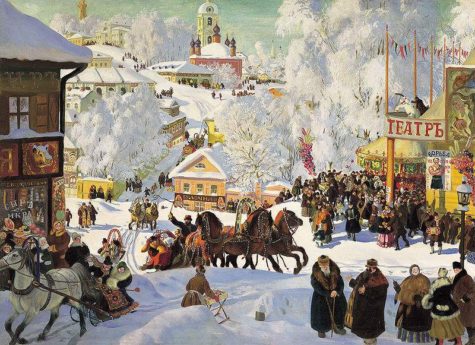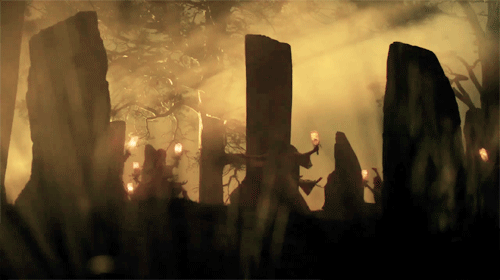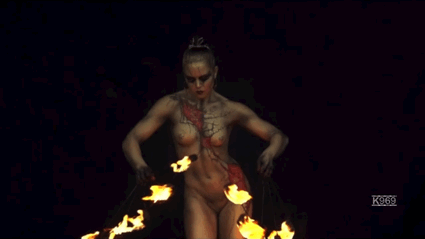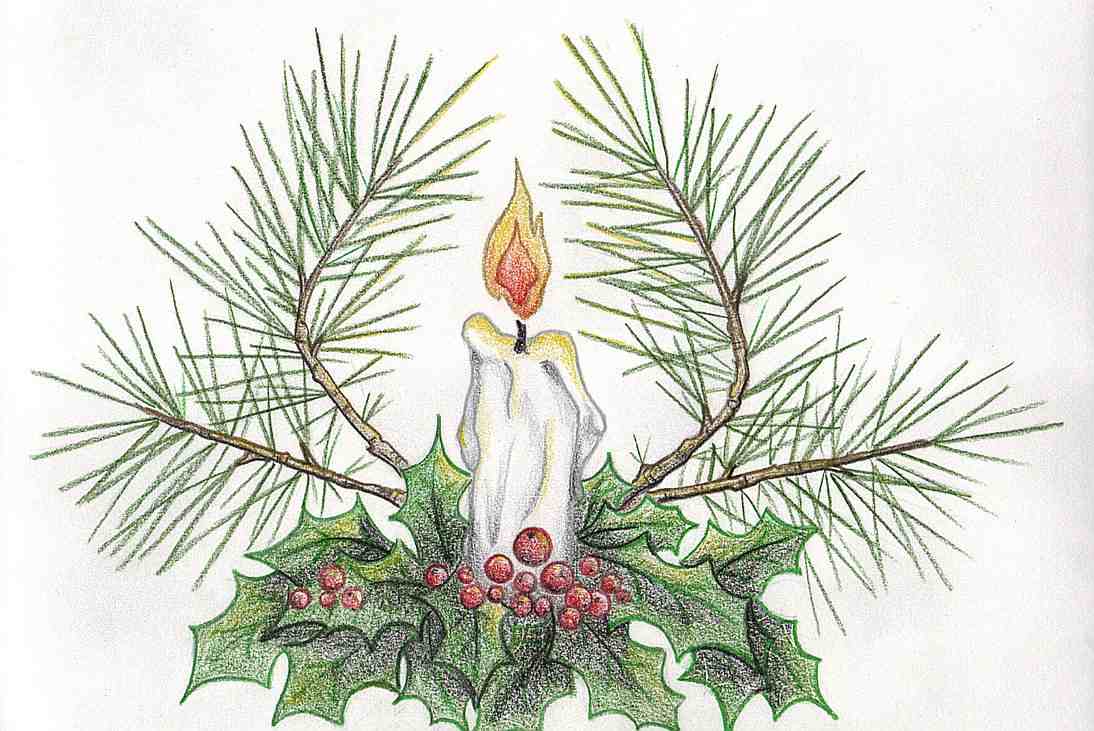Daily Archives: February 20, 2017
According to archeological evidence from 2nd century A.D. Maslenitsa may be the oldest surviving Slavic holiday. Maslenitsa has its origins in the pagan tradition. In Slavic mythology, Maslenitsa is a sun-festival, personified by the ancient god Volos, and a celebration of the imminent end of the winter. In the Christian tradition, Maslenitsa is the last week before the onset of Great Lent.
During the week of Maslenitsa, meat is already forbidden to Orthodox Christians, and it is the last week during which eggs, milk, cheese and other dairy products are permitted, leading to its name of “Cheese-fare week” or “Crepe week”. The most characteristic food of Maslenitsa is bliny thin pancakes or crepes, made from the rich foods still allowed by the Orthodox tradition that week: butter, eggs and milk. Here’s a recipe: Classic Krasnye Blini
Since Lent excludes parties, secular music, dancing and other distractions from spiritual life, Maslenitsa represents the last chance to take part in social activities that are not appropriate during the more prayerful, sober and introspective Lenten season.
In some regions, each day of Maslenitsa had its traditional activity:
Monday:
Monday may be the welcoming of “Lady Maslenitsa”. The community builds the Maslenitsa effigy out of straw (из соломы), decorated with pieces of rags, and fixed to a pole formerly known as Kostroma. It is paraded around and the first pancakes may be made and offered to the poor.
Tuesday:
On Tuesday, young men might search for a fiancée to marry after lent.
Wednesday:
On Wednesday sons-in-law may visit their mother-in-law who has prepared pancakes and invited other guests for a party.
Thursday:
Thursday may be devoted to outdoor activities. People may take off work and spend the day sledding, ice skating, snowball fights and with sleigh rides.
Friday:
On Friday sons-in-law may invite their mothers-in-law for dinner.
Saturday: Saturday may be a gathering of a young wife with her sisters-in-law to work on a good relationship.
Sunday:
Relatives and friends ask each other for forgiveness and might offer them small presents. As the culmination of the celebration people gather to “strip Lady Maslenitsa of her finery” and burn her in a bonfire. Left-over pancakes may also be thrown into the fire and Lady Maslenitsa’s ashes are buried in the snow to “fertilize the crops”.
Found at: Wikipedia
Maslyanitsa means butter in Russian, and it is also the name of the festival that says goodbye to winter and welcomes summer. From Moscow to St. Petersberg, Russians celebrate Butter Week just before their Lent fast days. The dates vary falling sometime in February or March. (In 2018, this festival begins on Feb 12).
During Lent, meat, fish, dairy products and eggs are forbidden. Furthermore, Lent also excludes parties, secular music, dancing and other distractions from the spiritual life. Thus, Maslenitsa represents the last chance to partake of dairy products and those social activities that are not appropriate during the more prayerful, sober and introspective Lenten season.
Monday is the high point of celebration, when people cook pancakes, or blini, served with honey, caviar, fresh cream and butter. The more butter there is, the hotter the sun is expected to be in the coming summer.
The most characteristic food of Maslenitsa is bliny (pancakes). Round and golden, they are made from the rich foods still allowed by the Orthodox tradition: butter, eggs and milk. Here’s an authentic traditional recipe: Classic Krasnye Blini.
Maslenitsa activities also include snowball fights, sledding, riding on swings and plenty of sleigh rides. In some regions, each day of Maslenitsa had its traditional activity: one day for sleigh-riding, another for the sons-in-law to visit their parents-in-law, another day for visiting the godparents, etc. The mascot of the celebration is usually a brightly dressed straw effigy of Lady Shrovetide, formerly known as Kostroma.
As the culmination of the celebration, on Sunday evening, Lady Maslenitsa is stripped of her finery and put to the flames of a bonfire. Any remaining blintzes (pancakes) are also thrown on the fire and Lady Maslenitsa’s ashes are buried in the snow “fertilize the crops”.
The last day of Butter Week is called “Forgiveness Sunday,” At Vespers on Sunday evening, all the people make a poklon (prostration) before one another and ask forgiveness, and thus Great Lent begins in the spirit of reconciliation and Christian love. The day following Forgiveness Sunday is called Clean Monday, because everyone has confessed their sins, asked forgiveness, and begun Great Lent with a clean slate.
Found at: Wikipedia





